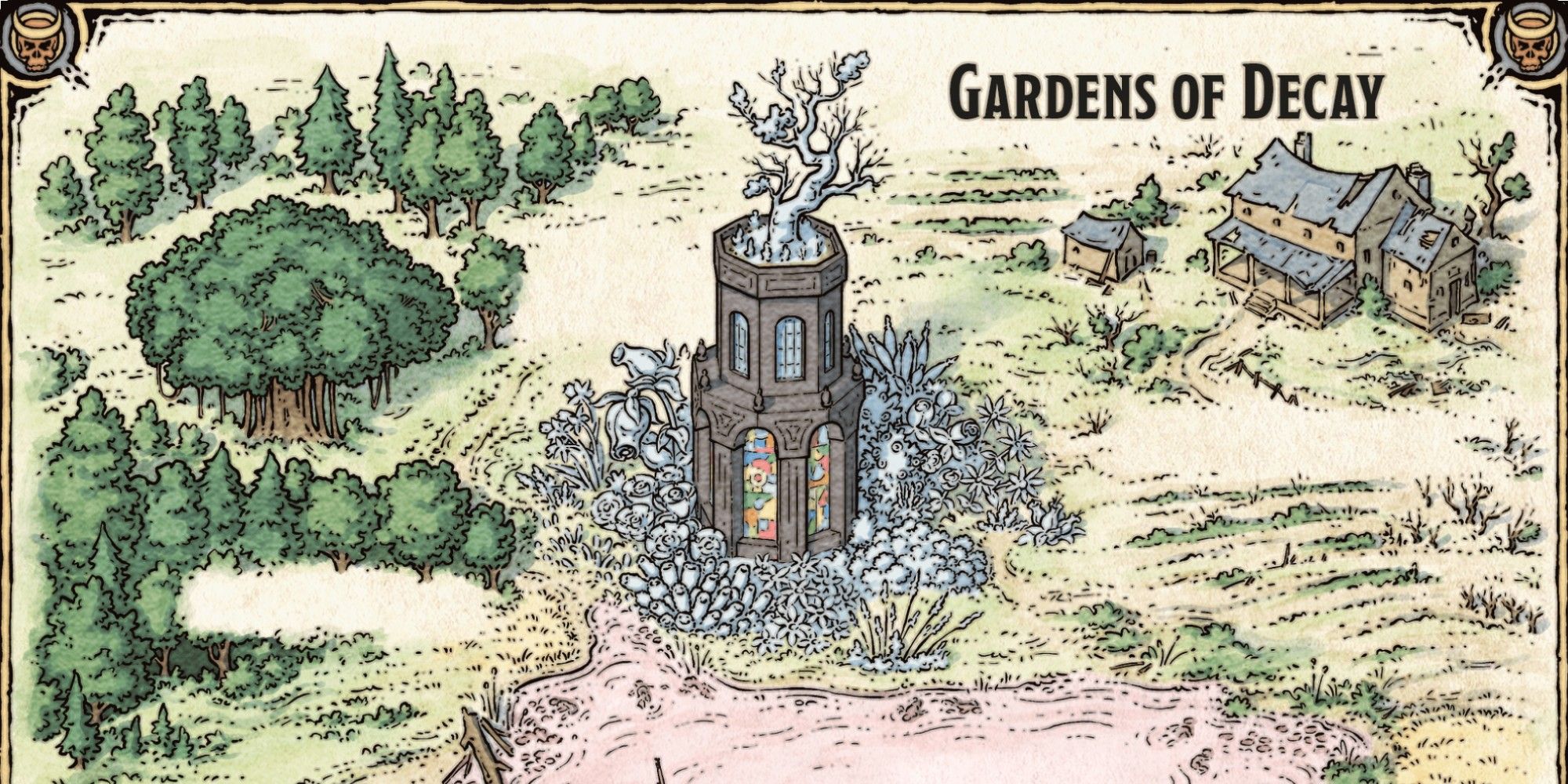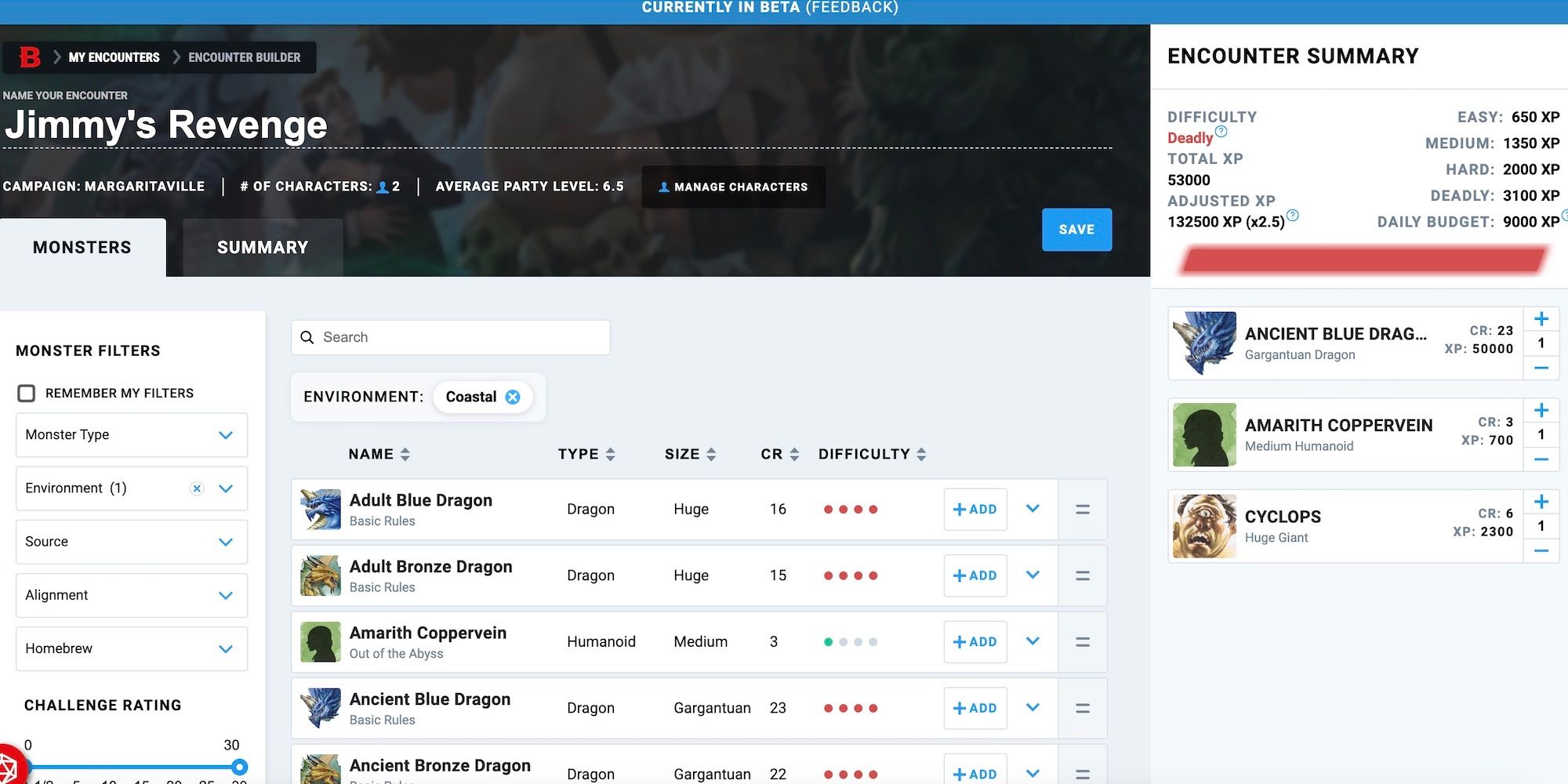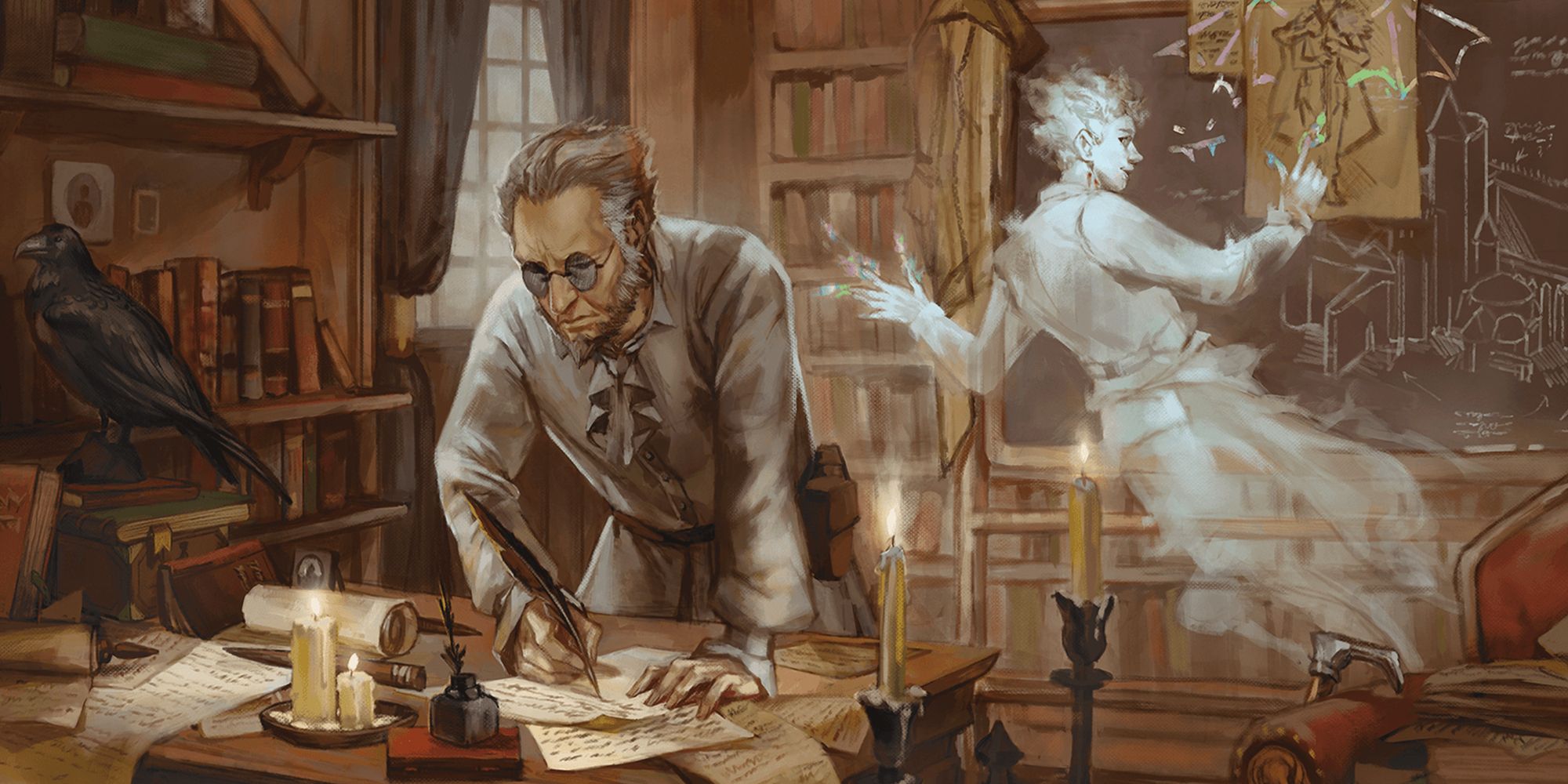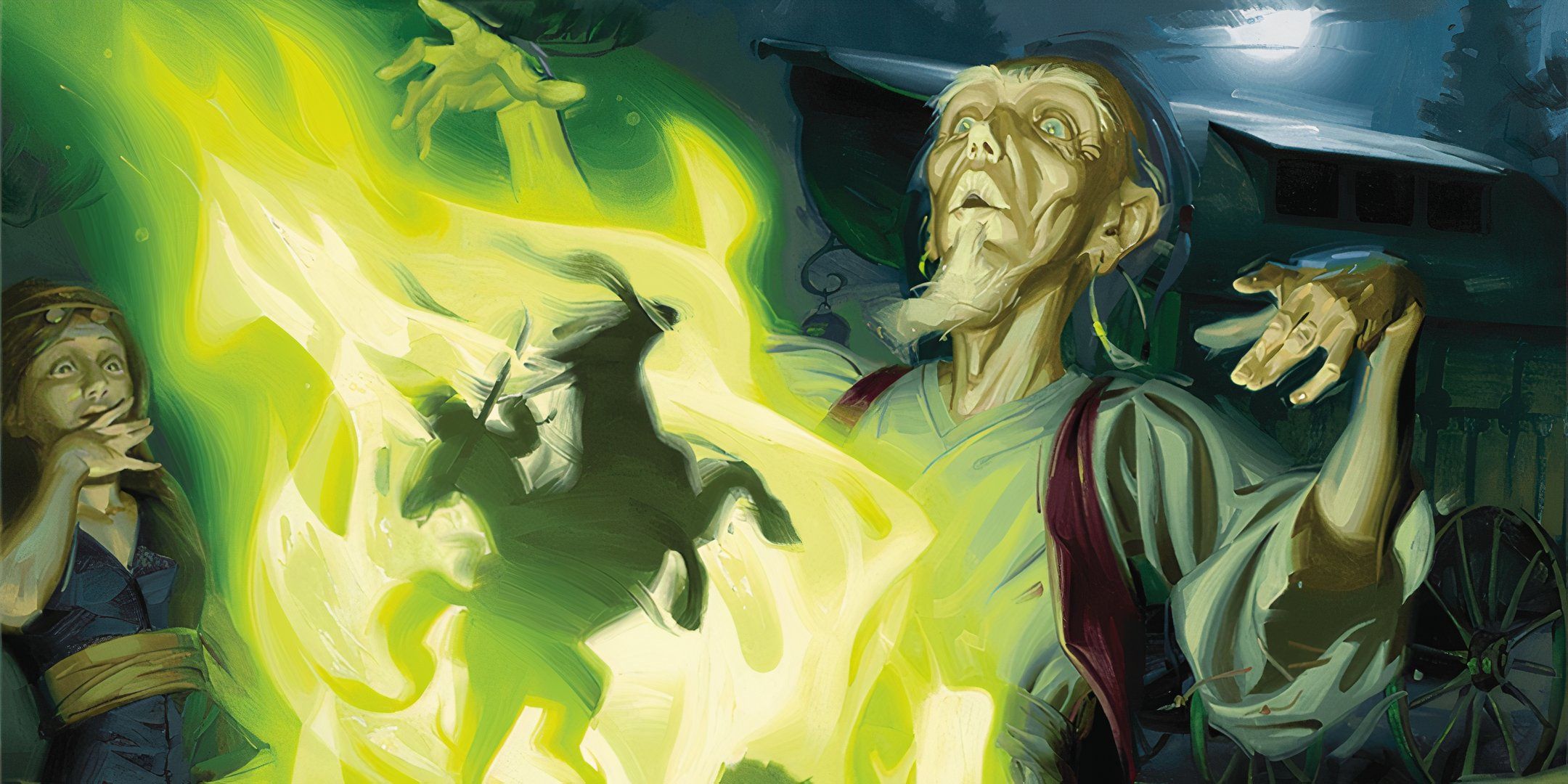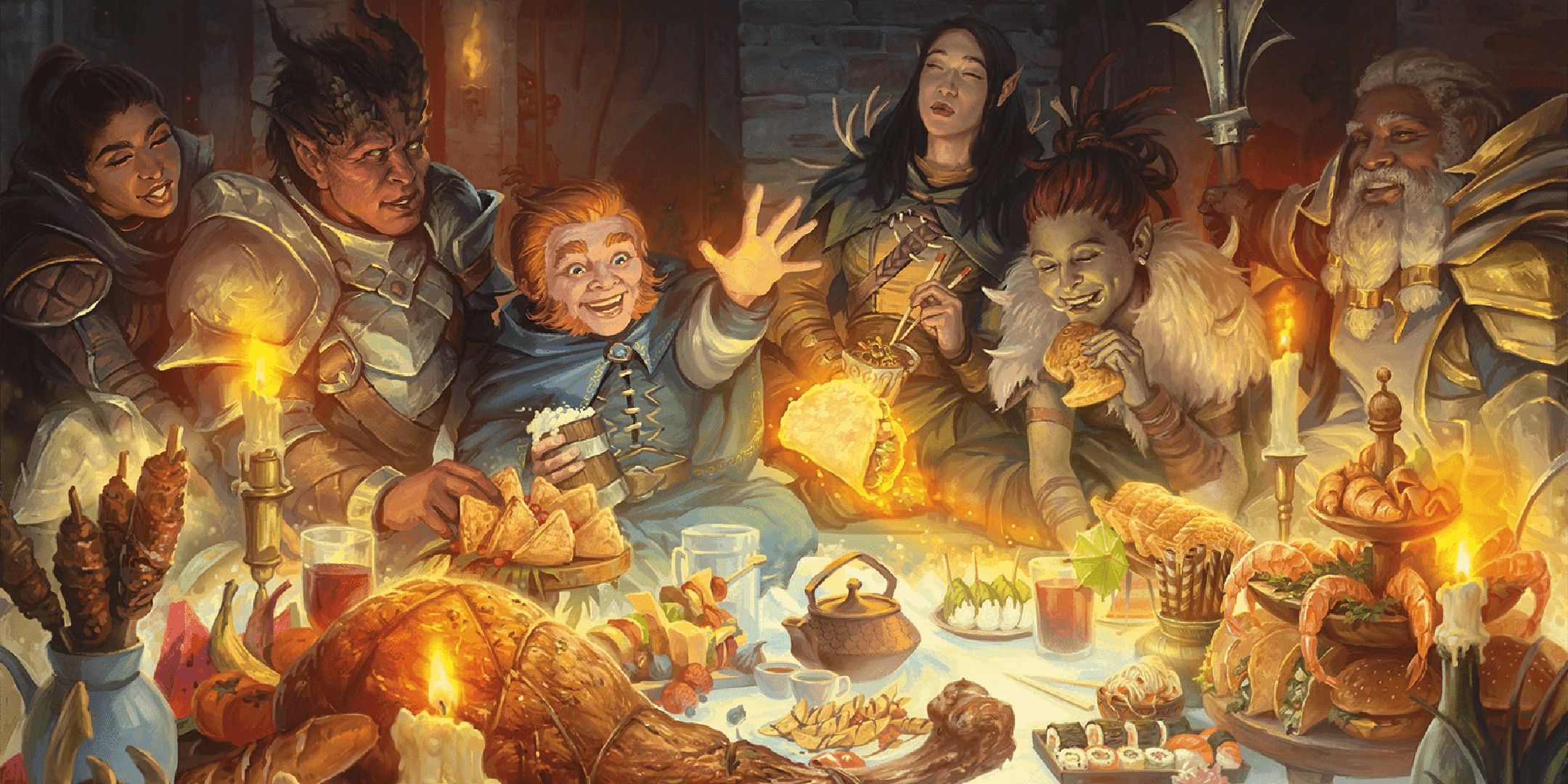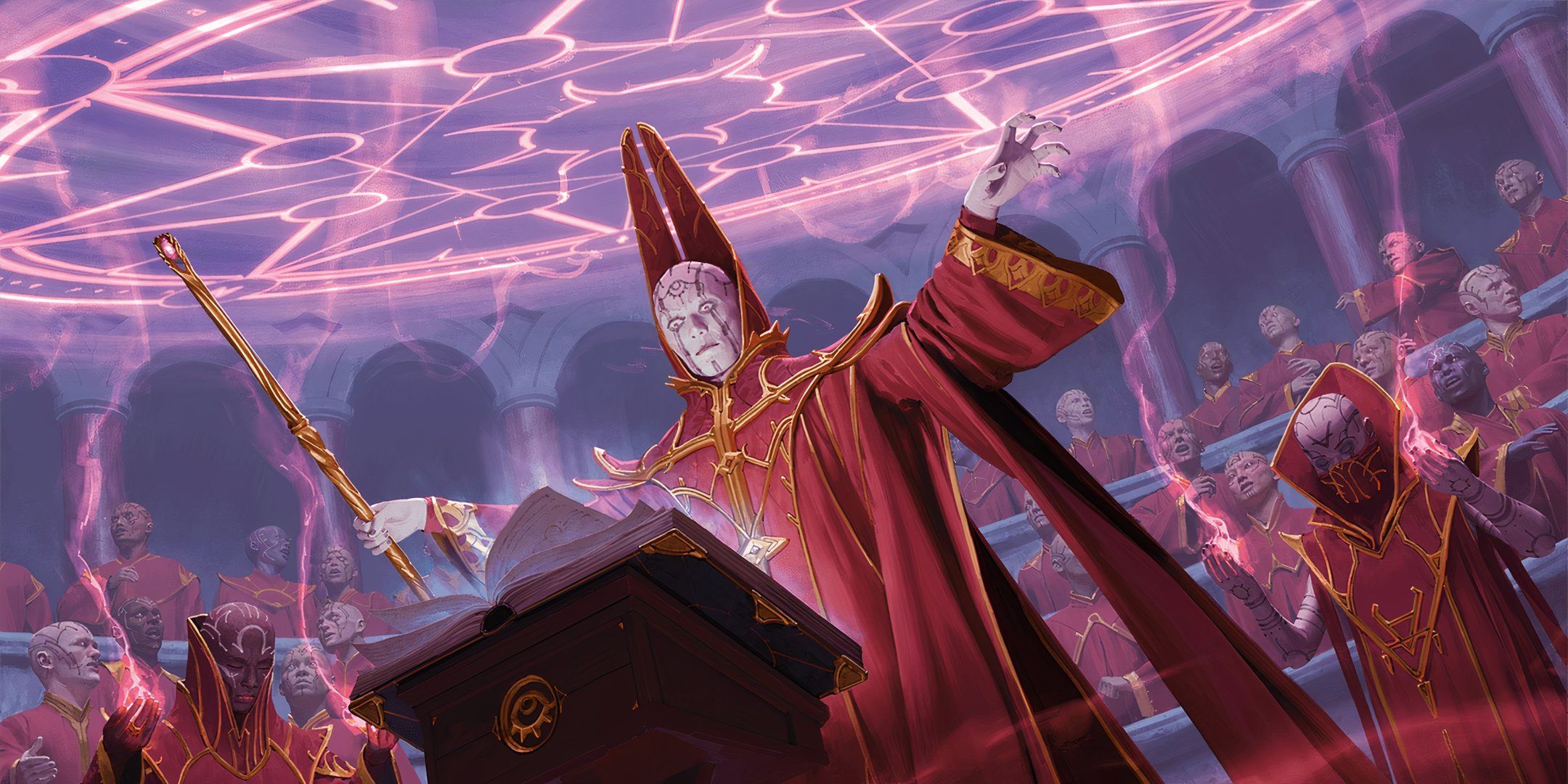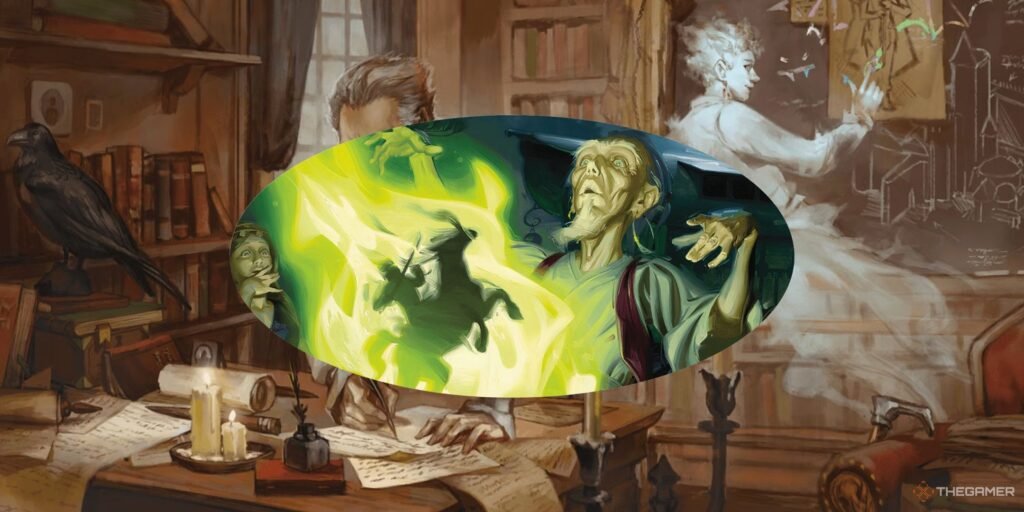
There are plenty of tabletop games out there that have page upon page of rules to follow. While those can be fun if you have the time to memorize and a party that wants to play, sometimes a tabletop RPG with a little more leniency and open-endedness can be more fun. Dungeons & Dragons has grown from its first edition into a game that can be modified at the whim of any player or DM.
While everyone has their own way to play, there are some ways to modify the game that allow for it to flow more easily, be more accessible, or just have fewer moving parts. If you’re tired of rolling for everything, or you’re DM-ing for a new group, check out these ways to make the game a bit easier.
Get Rid Of The Maps
Going In Blind
One of the ways to cut down time, not only for you as a DM, but also for your characters, is to remove the battle maps when you play. Characters worrying about their movement speed in the five-foot intervals can be time-consuming and distracting from the main feel of the game.
Running in the theater of the mind, or just removing the grid from a map, can be a great way to keep even the most complex combat moving a bit faster. Movement can still be a thing you keep track of, just more winging it than in measured intervals.
Consider Websites
The Power Of Technology
While there are many ways to make D&D easier that DMs have been using for decades, some are a little more cutting-edge than that. Websites have popped up over the years that allow for much easier control of D&D as a whole.
There are websites for nearly everything: challenge rating calculators, character summaries, name generators, map builders, anything you can think of there is probably a self-made or WoC website ready for you. If you have a laptop on hand, or you’re playing online, check out some of the options available to you that you can have handy or running in the background.
This goes for both DMs and characters, as there is a wealth of websites for both.
Don’t Worry About Enemy HP
Feel Out The Vibe
The same way as with movement, HP for enemy encounters is another thing that takes a lot of time to keep track of, depending on the number of enemies on the map. You can forgo that and go for more of a feel for the encounter if you so choose.
This is great for the overall time and theme of the game, as you can kill off enemies when enough hits have landed and the combat starts to get repetitive. The opposite is also true, allowing you to drag out combat for tougher enemies and ignoring specifically good rolls instead of contributing to the tension of the game.
Set Up Tables And Printouts
Data Galore
The boon of any DM is the printout. The internet is incredibly handy nowadays, allowing you to pull up info in seconds, but nothing beats having groups of important info on paper nearby.
Spells, character scores, stat blocks, and any other information can be grouped up and kept on a screen or in a binder for quick access. It sounds simple, but never underestimate something that has made the lives of DMs easier for decades now. Get crafty with it, too, and add notes as you go.
Set Up Plot Armor
The Chosen Ones
This is a great idea for new players, especially. Your characters will probably be heroes, or at least heroes in the making. With that, if you’re worried about your players getting in over their heads, you can always add on plot armor.
You can twist rolls to your players’ advantage, not letting them know what you’re doing, or you can be more straightforward in your plot armor. A deity with your players in mind can be a great way to ensure the game doesn’t end too soon. This also takes a bit of the stress off of making choices for their characters.
Use Group Rolls
No I In Team
Individual rolls are the usual thing for most checks and saves in D&D, but to save time, it can be a great idea to just go with a group roll. This is great for traveling, basic checks, area of effect rolls, or anything that may affect the entire party or a group.
Going off the average, or just doing a single roll from a chosen player, can keep things moving quickly and save time for rolling and adding modifiers. Plus, if you rotate the rolls, it lets everyone be in the spotlight at least every so often, keeping everyone informed and having a stake in the game.
Use Visuals
Stick Figures For Everyone
While describing a setting or monster is the go-to for most DMs, a visual here and there is never a bad idea. Anything that gets a point across, from a stock photo to a drawing to a quick image search, can help your players understand exactly what you mean.
This is great for keeping everyone on the same page, especially with more complex ideas or detail-oriented things you want to describe. It also cuts down on time, which helps keep the adventure going.
Don’t Be A Rules Lawyer
The Rule Of Cool
This can be a tough one for some DMs, but everyone has their own way to interpret rules. When it comes to rules with more vague wordings, or the ever-dreaded “can I,” you can always go with the Rule of Cool and similar ways of deciding.
Allowing more fun things to transpire can be great for a fun time and easy playing, or at least letting the table decide as a unit can keep everyone involved. No matter what, it can take time and make it inherently more frustrating to pull up the rulebook for every little thing instead of letting some things play on.

